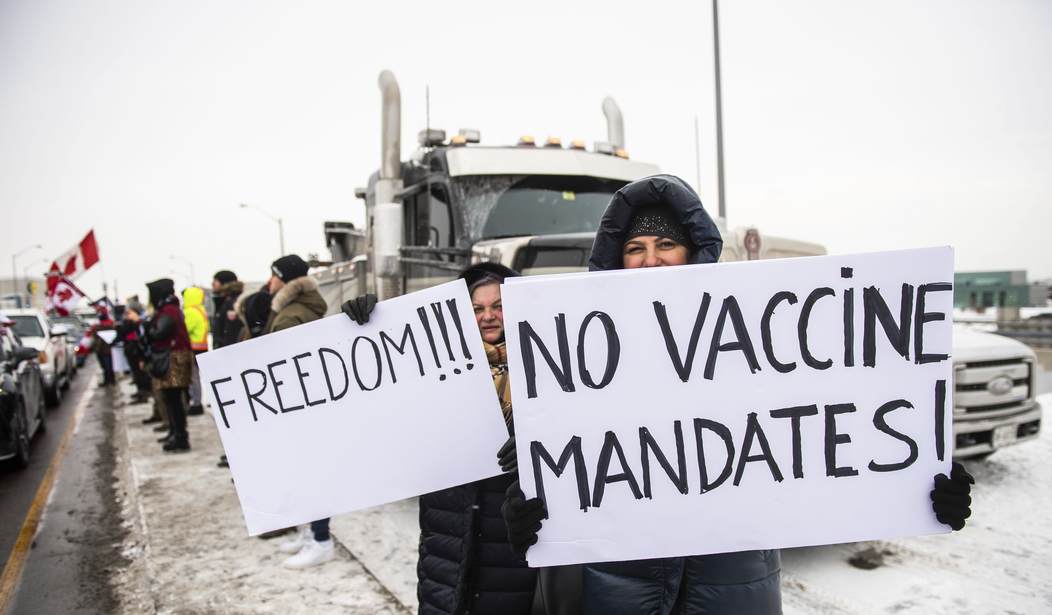The eighth annual Human Freedom Index published by the libertarian-leaning Cato Institute is a guide to understanding how free or unfree almost every country in the world is. The level of freedom is judged by 12 distinct categories, including:
- Rule of law
- Security and safety
- Movement
- Religion
- Association, assembly, and civil society
- Expression and information
- Relationships
- Size of government
- Legal system and property rights
- Sound money
- Freedom to trade internationally
- Regulation
On a scale of 10 being most free and 1 being least free, worldwide freedom took a major hit in 2022. “There can be no doubt that the coronavirus pandemic was calamitous for overall human freedom,” write the authors of the Index, Ian Vásquez, Fred McMahon, Ryan Murphy, and Guillermina Sutter Schneider.
“The key question in future years is whether governments will fully reverse COVID‐related restrictions on freedom as the pandemic moderates or whether some will continue to exert the additional control and spending power they have appropriated to themselves during the pandemic,” they write.
In all my 69 years, I’ve never heard of any government — free or unfree — voluntarily relinquishing power once it’s either been given by the legislature or, as in this case, unilaterally appropriated.
Related: A Double Attack on Our Health and Freedom
Even more insidious, the $5 trillion-plus pandemic “relief” measures contained thousands and thousands of pages that not one congressmen was able to read and digest before voting on. We’re still trying to understand what exactly was given to the federal government from these massive power grabs by the executive.
The revolt by conservatives during the speaker fight against this status quo arrangement to blindly transfer massive amounts of power from Congress to the executive may or may not put an end to government by fiat. But at least, there’s now an awareness that it needs to stop — regardless if there’s an “emergency” or not.
The countries that took the top 10 places, in order, were Switzerland, New Zealand, Estonia, Denmark, Ireland, Sweden, Iceland, Finland, the Netherlands, and Luxembourg. Selected jurisdictions rank as follows: Canada (13), Taiwan (14), Japan (16), Germany (18), United Kingdom (20), United States (23), South Korea (30), Chile (32), France (42), Argentina (74), South Africa (77), Brazil (80), Ukraine (89), Mexico (98), India (112), Russia (119), Nigeria (124), Turkey (130), China (152), Saudi Arabia (159), Iran (162), Venezuela (163), and Syria (165).
In 2000, the United States was ranked number three in human freedom. We’re now ranked number 23, and the reason is the precipitous loss of personal freedom. The U.S. ranked 33 out of 165 in personal freedom categories, including a large drop in rankings for rule of law and freedom of expression.
One of the more interesting things about this index is the correlation between freedom and economic security.
Jurisdictions in the freest quartile enjoy more than twice the average per capita income ($48,644) of those in the other quartiles ($23,404 for the second freest). On average, the freest jurisdictions in the world have a much higher per capita income than those that are less free. The HFI also finds a strong relationship between human freedom and democracy.
The findings in the HFI suggest that freedom plays an important role in human well‐being, and they offer opportunities for further research into the complex ways in which freedom influences, and can be influenced by, political regimes, economic development, and the whole range of indicators of human wellbeing.
The last twenty years have seen unparalleled growth of government — both civilian and military sectors. The growth of the national security state following 9/11 has been matched by the growth of the welfare state. By its very nature and necessity, big government curtails human freedom.
Getting the growth of the government under control has to be a priority for conservatives going forward in 2022 and beyond.










